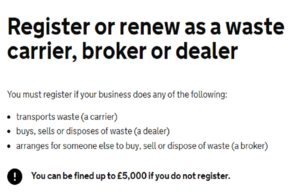- The UK has ordered 40 million vaccine doses from Pfizer/BioNTech – enough for up to a third of the population
- Initial data shows the vaccine is 94% effective in protecting people over 65 years old from coronavirus and clinical trials have not reported any serious safety concerns
The government today (Monday 23 November) welcomes the Medicines and Healthcare products Regulatory Agency’s (MHRA) review of data from Pfizer/BioNTech to determine whether its vaccine meets robust standards of quality, safety, and effectiveness.
The companies have reported data that indicates their vaccine is 94% effective in protecting people over 65 years old from COVID-19, with trials suggesting it works equally well in people of all ages, races and ethnicities.
As the first country to pre-order the vaccine from Pfizer/BioNTech, the UK is expected to receive a total of 40 million doses by the end of 2021, enough to vaccinate up to a third of the population, with the majority of doses anticipated in the first half of next year.
The COVID-19 vaccine will only be authorised for supply by the UK’s independent regulator the MHRA if it meets strict standards of quality, safety, and effectiveness, and if they are satisfied the vaccine can be consistently manufactured.
Today marks the next step forward for the vaccine following the MHRA’s confirmation that it has received the necessary data to progress their review into whether the vaccine meets the required standards.
Despite encouraging data about this vaccine, people must continue to follow public health advice to keep themselves and their loved ones safe; regularly washing their hands, wearing a face mask and making space.
Health and Social Care Secretary Matt Hancock said:
The whole country will be cheered by the news that Pfizer/BioNTech have formally reported the data from their clinical trials for their vaccine to the regulator. This is another important step on the road to recovery. We must now allow the MHRA’s renowned teams of scientists and clinicians to make an independent assessment of whether it meets their robust standards of quality, safety, and effectiveness.
If approval is granted, the NHS will be ready to deliver. The NHS has vast experience in delivering widespread vaccination programmes and an enormous amount of work has taken place to ensure we have the logistical expertise, transport and workforce to roll out a vaccine according to clinical priority, at the speed at which it can be manufactured.
Business Secretary Alok Sharma said:
Today, we have renewed hope that we are on the brink of one of the most significant scientific discoveries of our time, as we reach the crucial last stage to finding a COVID-19 vaccine.
While this news is a cause for celebration, we must make sure that this vaccine, like all new medicines, meets standards of quality, safety, and effectiveness. I urge the public to be patient while we wait for regulators to do a thorough assessment.
Finding a vaccine is not going to end the pandemic overnight, but we are hopeful of being one step closer to defeating this terrible virus.
Final deployment plans will depend on decisions by regulators but preparations have been underway for months and are in place to ensure that:
- the NHS will be ready to begin vaccinating as soon as the first vaccine is approved and delivered to the UK
- GPs have already been signed up to take part in the programme when an appropriate vaccine is ready
- dozens of hospitals across the country will lead co-ordination on behalf of neighbouring hospitals, community trusts and local health groups in vaccinating staff and other priority groups
- there will also be vaccinations sites across the country
The government has purchased 7 different types of vaccine in advance and procured 355 million doses. This includes 100 million doses of the vaccine being developed by AstraZeneca and the University of Oxford.
The UK government is working closely with the devolved administrations to ensure an aligned approach to COVID-19 vaccine deployment across the UK.
Chair of Vaccines Taskforce, Kate Bingham, said:
We are moving ever closer to having the means with which to help end this pandemic but we must wait for the outcome of the MHRA assessment before we will truly know if we have our first approved vaccine.
Irrespective of the outcome, which we all hope will be positive, this is a tremendous day for science. It is testament to the Herculean efforts of the scientific and biopharmaceutical community and it makes me immensely proud.
Pfizer/BioNTech vaccine doses, manufacturing and storage
Pfizer has said that based on current projections it expects to produce globally up to 50 million vaccine doses in 2020. The UK is currently in discussion with Pfizer/BioNTech on how many doses could be provided to the UK by the end of the year.
The vaccine will be manufactured in BioNTech’s German sites, as well as Pfizer’s manufacturing site in Belgium. The government is working closely with partners across the health system to put in place robust measures for the end of the transition period to ensure that a COVID-19 vaccine can be delivered across the country wherever it is needed. This includes putting in place robust contingency measures to ensure that vaccine freight will continue unimpeded.
All vaccine candidates for supply and onward deployment have clear supply chain plans, including materials, manufacturing, transport, storage and distribution. The government, through its Vaccines Taskforce, has conducted a supply chain risk assessment and is working with the vaccine suppliers to understand the optimal logistics and timings to deliver vaccines. Capacity has already been reserved by the suppliers where their programmes are mature and detailed plans are in place for all early candidates.
The government is confident that the cold supply chain needed to distribute the Pfizer/BioNTech vaccine will not cause any problems and will make no difference to the speed at which the UK will receive its doses.
Pfizer has years of proven experience in cold supply chain management and delivering temperature-controlled vaccines to locations across the world. Pfizer has developed packaging and storage innovations for the vaccine and has specifically designed, temperature controlled thermal shippers that use dry ice to maintain recommended temperature conditions (-70°C ±10°C). They can be used as temporary storage units for 15 days by refilling with dry ice. The thermal shippers also have GPS-enabled thermal sensors in every thermal shipper that will enable their location and temperature to be tracked across their pre-set routes.
When the vaccine is stored in a fridge, it has an effective life of up to 5 days at temperatures of 2 to 8 degrees, which allows it to be easily stored at distribution centres across the country.
MHRA
The MHRA is the UK’s independent regulator, globally recognised for requiring the highest standards for quality, safety and effectiveness.
Until the end of December, and as part of the transition period, vaccines must be authorised via the European Medicines Agency and that authorisation will automatically be valid in the UK.
However, if a suitable COVID-19 vaccine candidate, with strong supporting evidence of safety, quality and effectiveness from clinical trials becomes available before the end of the transition period, EU legislation which we have implemented via Regulation 174 of the Human Medicines Regulations allows the MHRA to temporarily authorise the supply of a medicine or vaccine, based on public health need.
After the transition period ends in January 2021, the MHRA will have new powers to approve medicines, including vaccines, and will have greater flexibility to do this in a shorter time, while maintaining the highest standards of safety, quality and effectiveness.
Vaccine prioritisation and deployment
The Joint Committee on Vaccination and Immunisation (JCVI) are the independent experts who advise the government on which vaccines the UK should use and provide advice on who should be offered the vaccination first. The committee’s interim advice is that a COVID-19 vaccine should first be given to care home residents and staff, followed by people over 80 and health and social workers, then to the rest of the population in order of age and risk.
There are currently no plans for a COVID-19 vaccine to be compulsory.
Vaccination will be managed by the health services in each nation: NHS England and NHS Improvement, NHS Wales, NHS Scotland, and Health and Social Care Northern Ireland.
UK vaccine procurement
Through the government’s Vaccines Taskforce, the UK has secured early access to over 355 million doses of 7 of the most promising vaccine candidates, including:
- BioNTech/Pfizer for 40 million doses
- Oxford/AstraZeneca for 100 million doses
- Moderna for 5 million doses
- GlaxoSmithKline and Sanofi Pasteur for 60 million doses
- Novavax for 60 million doses
- Janssen for 30 million doses
- Valneva for 60 million doses

